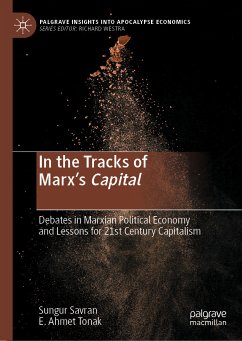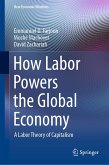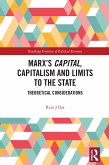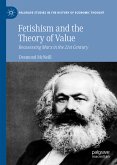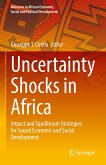Guglielmo Carchedi, Retired Professor, University of Amsterdam
"This thought-provoking book clarifies many of the controversies and confusions surrounding Marx's Capital, and considers how to measure and assess some crucial Marxist variables."
Jayati Ghosh, Professor of Economics, University of Massachusetts Amherst
"Tonak and Savran show convincingly that Marx's Capital remains the bedrock for understanding the laws of motion of capitalist production."
Michael Roberts, Author of The Great Recession, The Long Depression and Marx 200
"This is living Marxism!"
Tamás Krausz, Author of Isaac and Tamara Deutscher Memorial Prize-Winner Reconstructing Lenin: An Intellectual Biography, editor of Hungarian Marxist journal Eszmélet
"Indispensable."
Alfredo Saad-Filho, SOAS University of London, University of Johannesburg, and LUT University.
This book provides an accessible introduction to Marx's seminal work Capital and explores some of the core ideas of Marxian political economy relevant for modern day economies.
The first section of the book gives an overview of Capital, providing a historical background and the story of its making, as well as the authors' original thinking in the methodologies of Capital. This part also introduces readers to an important discussion of productive versus unproductive labour. The second part discusses the application of these ideas to some understudied questions of measuring profit on alienation, the rate of exploitation, including the reconstruction of input-output tables, as well as the role of the welfare state and the social wage. The third part sets forth new research in Marxian analysis in the 21st century, facing the challenges brought about by digital technology, digital labour, lean production and the long-run recessionary state of the global economy. The last part complements the first part on Marx's theory of value by presenting original arguments regarding the Marxism/Neo-Ricardianism debate.
Sungur Savran is a graduate of Brandeis University in politics and holds a PhD in economics from Istanbul University. He has taught as visiting scholar at universities in the United States. He is actively engaged in socialist politics.
E. Ahmet Tonak is a Research Affiliate at Smith College. He has taught economics at Bard College at Simon's Rock and was a visiting professor at the Middle East Technical University in Turkey and UMAss Amherst.
Dieser Download kann aus rechtlichen Gründen nur mit Rechnungsadresse in A, B, BG, CY, CZ, D, DK, EW, E, FIN, F, GR, HR, H, IRL, I, LT, L, LR, M, NL, PL, P, R, S, SLO, SK ausgeliefert werden.

